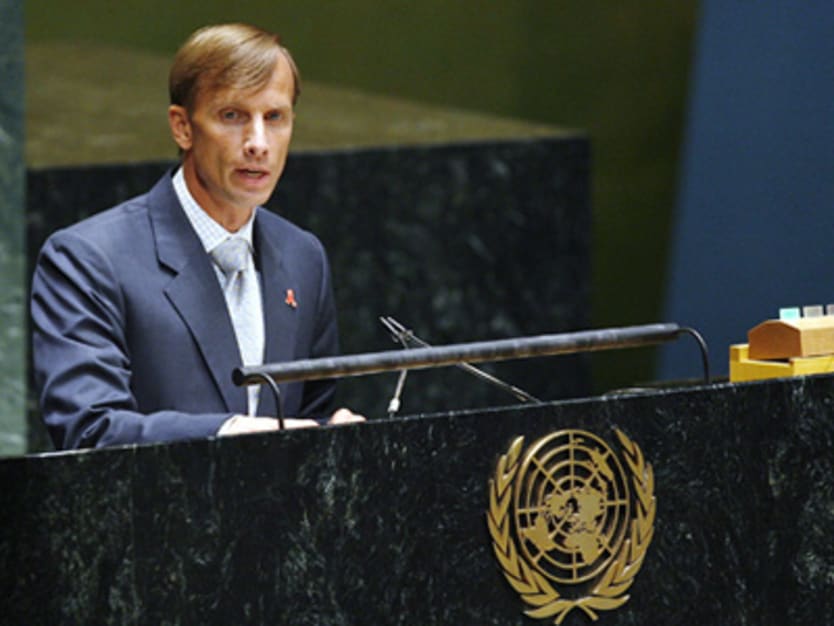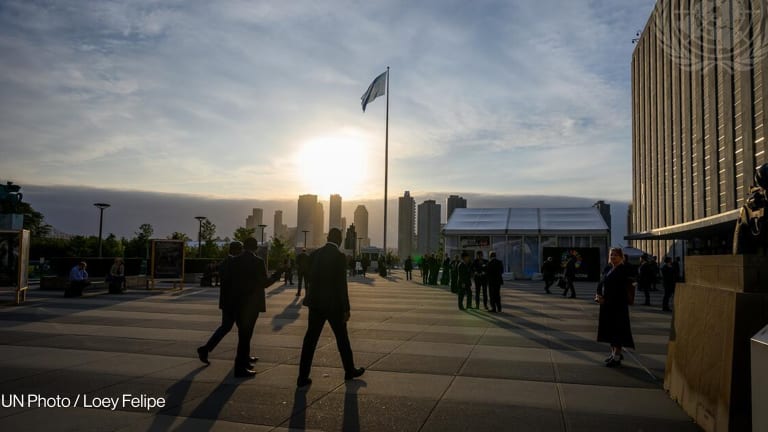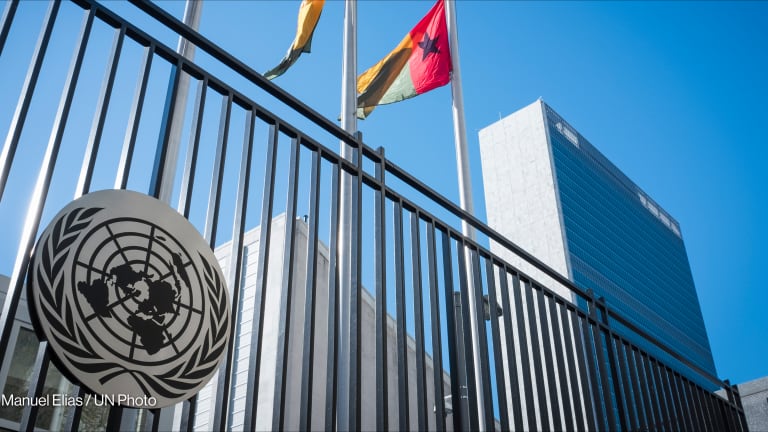
World leaders and the development community are picking up momentum as they prepare for the second day of the U.N. General Assembly in New York, where the future of international development is being discussed.
Several interesting pledges were announced on Tuesday, including an ambitious commitment from the United Kingdom to support the global battle against AIDS, tuberculosis and malaria.
Here are Monday’s five major announcement from New York:
1. Major UK pledge to Global Fund
On Monday we reported that Mark Dybul, executive director of the Global Fund to Fight AIDS, Tuberculosis & Malaria, had high hopes of generating enough goodwill from donors to complete its last funding cycle ahead of the organization’s 2014-2016 replenishment.
Dybul received an early Christmas gift from British Secretary for International Development Secretary Justine Greening, who announced in New York that the U.K. government would provide 1 billion pounds ($1.6 billion) or over 10 percent of the $15 billion the Global Fund needs to continue its work over the next three years. The pledge made by British Prime Minister David Cameron — which immediately became the buzz of the aid community gathered in Manhattan — is only slightly lower than the $1.65 billion U.S. President Barack Obama has requested from Congress for the Global Fund and shows how the United Kingdom is “an inspiring model of responsible global citizenship,” according to Global Fund chair Dr. Nafsiah Mboi.
With this latest pledge, the Global Fund has already secured about 30 percent of its funding needs for 2014-2016, so now the question is: Will other top donors follow suit and promise to help the top organization fighting AIDS, TB and malaria all over the world?
2. MDGs and post-2015
There’s growing momentum for world leaders gathered in New York to sign an “outcome document” on Wednesday that is seen as an important milestone toward setting a post-2015 global development framework.
But this time goals will be global, not only for developing countries, European Union development commissioner Andris Piebalgs told us in an exclusive interview. This may be a concern for the United States or China, especially if the goals include emissions targets or other outcomes that hamper their economic growth. Will the EU be able to push this agenda forward?
The MDGs were also the focus of several side events and high-level meetings in New York on Monday, particularly a ministerial breakfast hosted by South Sudan, East Timor and Denmark. Piebalgs said the meetings highlighted the importance of peace and security for international development and the need to come up with a set of measurable goals that also address employment gaps and human rights.
3. World Bank to help women and children
World Bank President Jim Kim got a warm round of applause when he announced to the delegates that at least $700 million would be made available over the next two years for women’s and children’s health needs in poor countries.
Kim explained that under his leadership, the money disbursed by the institution will follow his new results-based financing focus to have more impact on collective efforts to save more women and children’s lives, instead of just pouring in resources like the World Bank had been doing until now.
The announcement follows the World Bank’s 2013 commitment to help boost funding for the MDGs as part of U.N Secretary-General Ban Ki-moon’s “Every Woman, Every Child” global partnership to improve the health of women and children around the world, which will take center stage on Wednesday.
4. CGI: Stop trafficking, Hult Prize
The Clinton Global Intitiative was a flurry of activity on Monday.
Word came out that former U.S. Secretary of State Hillary Clinton is expected to announce on Thursday a new initiative to combat wildlife trafficking that involves several nonprofits and other stakeholders. The much-awaited announcement in New York coupled with another initiative by the so-called “Ocean Elders” — a group including billionaire philanthropists Richard Branson and Ted Turner to agree on funding priorities and a strategy to ensure environmental stewardship will be part of the post-2015 framework and discussed at the General Assembly.
The other highlight was the Hult Prize gala, during which former U.S. President Bill Clinton handed over the prize for innovation in social entrepreneurship to a group of MBS students from the University of McGill in Montreal who manage an program to empower undernourished communities in urban slums in Kenya, Mexico and Thailand by eating nutritious insects.
5. Saving Syria’s Children
Three years on, there seems to be no end in sight for the Syrian crisis, and as with most humanitarian crises, children are suffering the mist.
That’s why London-based NGOSave the Children hopes the U.N. General Assembly can help put the spotlight on the alarming food security crisis in the country, where children are surviving on fruit, leaves and nuts. The organization launched an appeal for world leaders to make Syria grants full access to humanitarians so they can deliver assistance everywhere in Syria.
We spoke with Carolyn Miles, Save the Children president and CEO, who said that hunger, more than violence, is the biggest problem now.
You can follow Devex on Twitter and Facebook, and find comprehensive coverage of New York #globaldev Week here.
Stay tuned for Tuesday’s coverage, which will feature the feedback on “Every woman, every child” as well as more outcomes from the Clinton Global Initiative and our happy hour with former awardees of the DC 40 Under 40 international development leaders.








